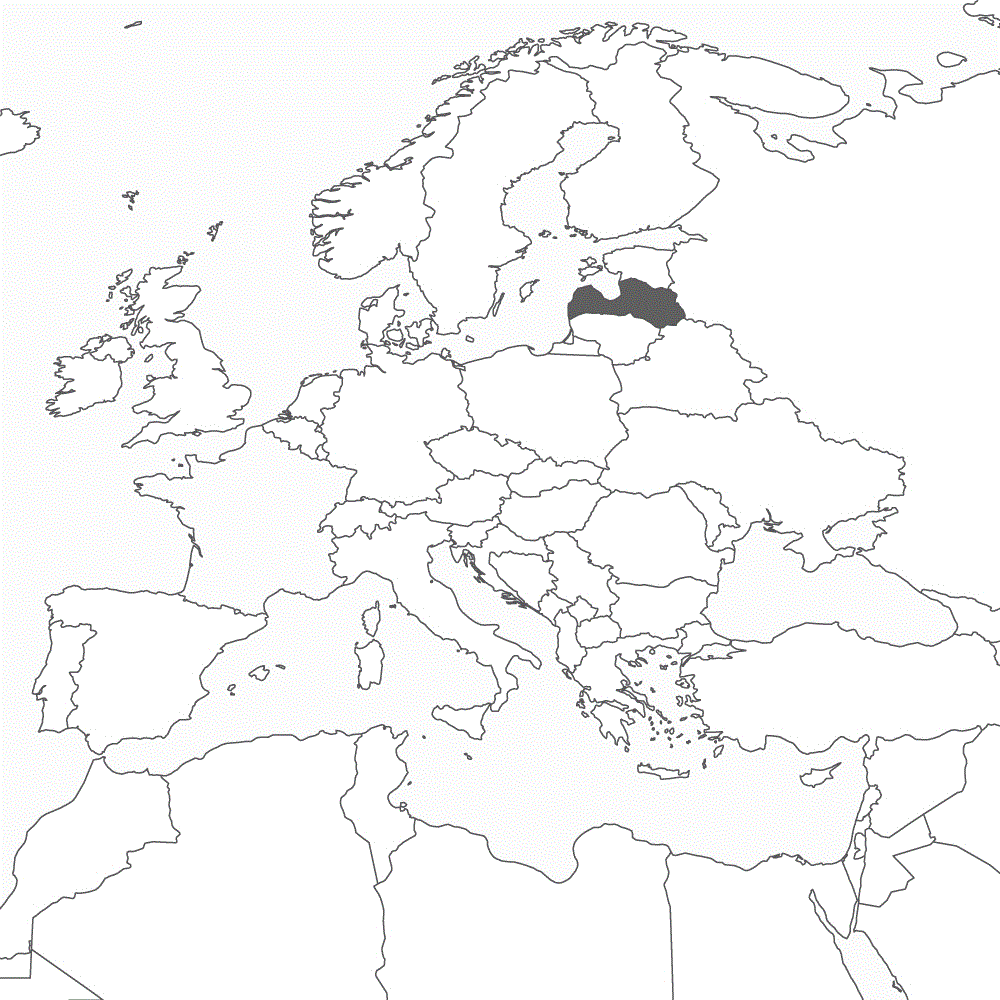"Liberation Fighters" and "Occupier"
RIGA (Own report) - On Sunday, the most extremist right wing organizations in Latvia are planning to stage a demonstration in commemoration of Latvian Nazi collaborators. "Legionaries' Day" commemorates Latvia's Waffen-SS units, honored as combatants against the Soviet Union. Many of them had helped the Nazi occupiers carry out mass murders of around 75,000 Latvian Jews, unable to flee before the Nazis' arrival. One of the extreme rightwing parties usually organizing the commemoration procession has a minister in the current government. One of that party's leaders expresses the anti-Russian sentiments of his followers by referring to the Latvian ethnic Russian inhabitants as "occupiers" and "illegal colonialists." His party is calling for their deportation ("repatriation") to Russia. The organization "Latvija bez Nacisma" ("Latvia without Nazism") has announced it will protest against this commemoration procession. Ukrainian nationalists had also participated in last year's procession.
Waffen-SS Commemoration
On Sunday, the most extremist right wing organizations in Latvia are planning to stage a demonstration in commemoration of the Latvian Nazi collaborators. The March 16 anniversary of the Latvian Waffen-SS units' battle in 1944 to halt the advance of the Soviet Army near, what are now, Latvia's eastern borders, has been annually celebrated as "Legionaries' Day" since 1990. Alongside fans of Nazi collaborators, surviving Waffen-SS veterans usually participate in Riga's commemoration procession. Last year, approx. 2,500 participants were counted by Latvian observers. With Latvia's little over 2.5 million inhabitants, this would correspond to around 100,000 demonstrators in Germany. The commemoration procession usually proceeds through Riga's downtown section to end in front of the Freedom Monument, where flowers are laid. A photo of a uniformed member of the SS is usually on display.
Only for the Fatherland
In Latvia - like in Lithuania and Estonia - even today, former Nazi collaborators are greeted with benevolent approval in wide sectors of the population. Two years ago Latvia's President Andris Bērziņš called criticism of honoring Waffen-SS soldiers "unfair" and issued a statement in support, saying also that they had only gone to war "for the fatherland." The Latvian ambassador to London attracted media attention, at the time, with the allegation that on March 16, "a few soldiers are merely showing their respects to their fallen comrades." That should not be seen as "historical revisionism."[1] Observers point to the fact that in the state-run "Museum of Occupation" members of the Waffen-SS are depicted as "Liberation fighters." The organizers of the commemoration processions are being invited to schools to teach courses in "patriotism."[2] This year, because of escalating tensions in Ukraine, the government has suggested a cancelation of the procession. But, the commemoration was not forbidden. One minister in the government coalition - Minster of Regions, Einārs Cilinskis - has even announced his opposition to the Prime Ministers recommendations and that he will take part in the commemoration. Cilinskis is a member of the "All for Latvia!" Party ("Visu Latvijai!", VL-TB/LNNK), which, in the last elections had polled 13.9 percent of the votes. This party has close links to the extreme right and is represented in the government coalition.
The Annihilation of Jewish Latvians
Many members of the Waffen-SS being again honored on Sunday, had participated in the annihilation of Jewish Latvians. Right after Kārlis Ulmanis' putsch May 15, 1934, Jewish Latvians employed by the government were fired. Jewish businesses were obliged to close. Immediately following their invasion in June 1941, the Germans carried out their first massacres, with Latvians' practical assistance. Soon Latvian auxiliary police units were created, for imprisoning and guarding Jews, as well as to carry out assassinations.[3] Only 15,000 of the 90,000 Jewish Latvians were able to flee with Soviet troops in the summer of 1941 ahead of the Nazis' invasion. Less than a thousand of the remaining 75,000 Jews survived German barbarism. Many of the Latvians, who had participated in the murders, joined the Latvian Waffen-SS, which in 1944 were engaged in the effort to defend the German killing fields from the Red Army. Around 140,000 Latvians had collaborated with the German occupiers.
Illegal Colonialists
What, at the time, had been the "anti-Bolshevist struggle" against the Soviet Union has today been transformed into open anti-Russian hostility. One of the two leaders of the 13.9 percent "All for Latvia!" Party, Raivis Dzintars, once declared that those, among the ethnic Russians - approximately 25 percent of the Latvian population - who had had professional ties to the military are "occupiers," and the others, "illegal colonialists." The "All for Latvia!" Party is calling for deportation ("repatriation") of the Russian-speaking minority. There are already around 280,000 Russian-speaking "non-citizens" - around 14 percent of the population - who are being refused Latvian citizenship and therefore, not eligible to vote and subject to other forms of discrimination. Clear structural similarities can not only be found to the other Baltic countries, but also to Ukraine, where, following the successful putsch, followers of anti-Russian Nazi collaborators became members of the government - with German assistance.[4] Ukrainian nationalists had participated in last year's commemoration procession in Riga, and Latvian parliamentarians had demonstrated recently on the Maidan in Kiev.
Nazi Opponents: "Russian-Imperial"
Also this year, as in the past, protests against the commemoration procession have been announced. In 2013, the movement "Latvija bez Nacisma" ("Latvia without Nazism") organized a conference with international participation. It was reported that "friends of the Waffen-SS gathered" at the conference venue, accusing the Nazi opponents of "being in the pay of the KGB and representing Russian imperial interests."[5] A wreath that had been posed at the Freedom Monument in commemoration of the Nazis' victims was destroyed by the organizers of the SS commemoration procession.
[1] See Tag der Kollaborateure.
[2] Am "Tag der Legionäre": Blumen für die Waffen-SS? berlin.vvn-bda.de.
[3] See Tag der Kollaborateure.
[4] See Vom Stigma befreit and The Kiev Escalation Strategy.
[5] Am "Tag der Legionäre": Blumen für die Waffen-SS? berlin.vvn-bda.de.
